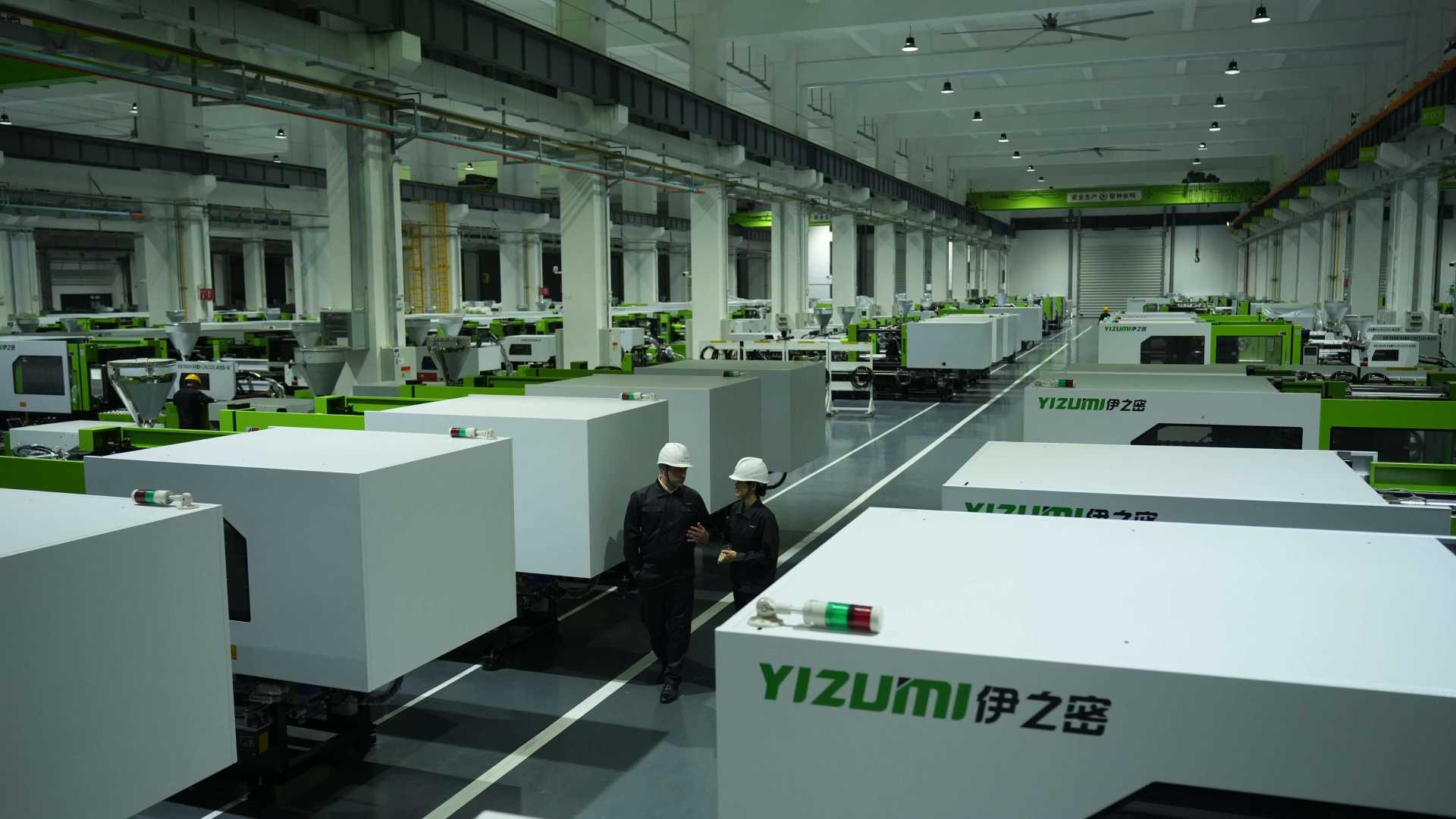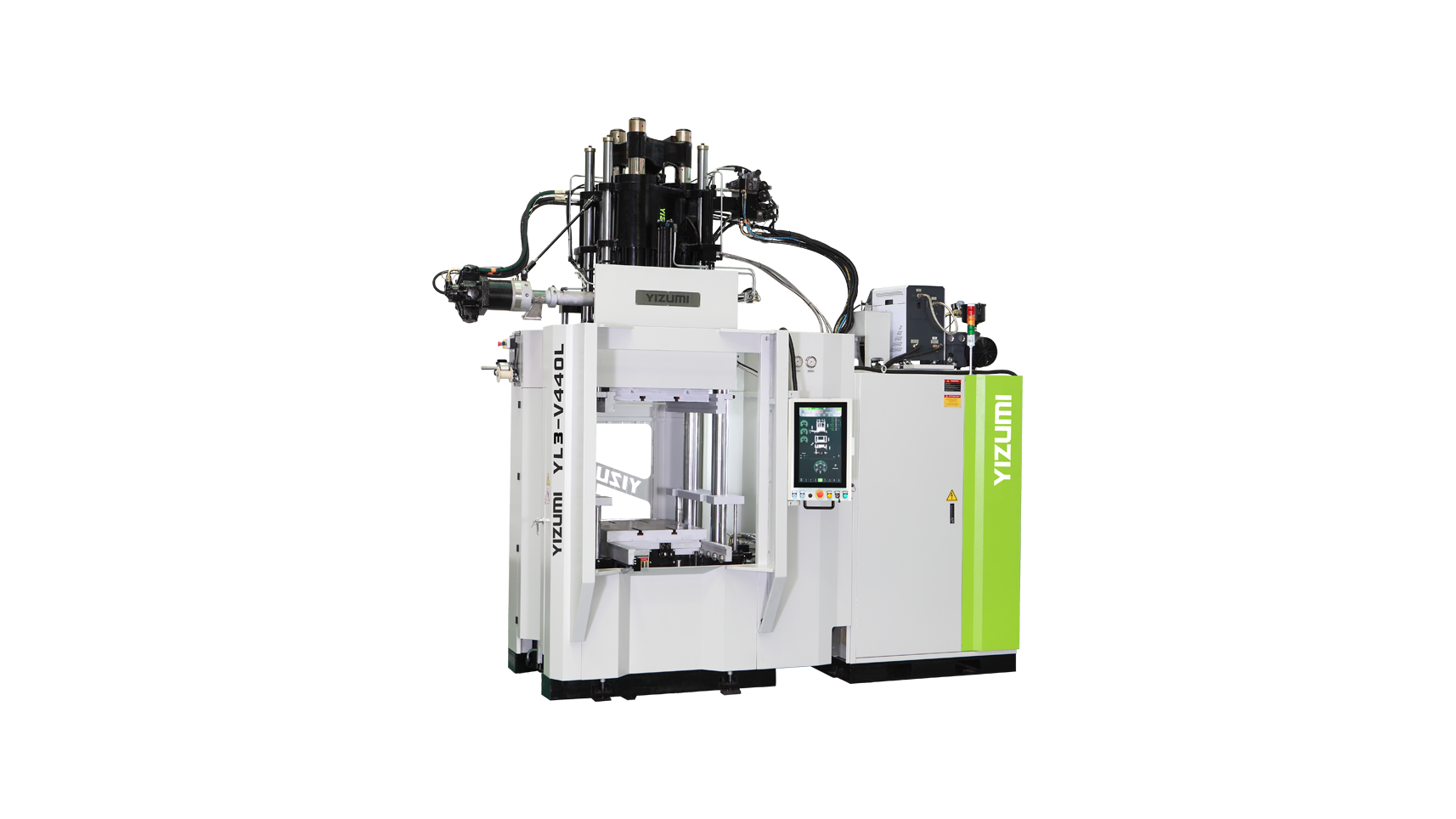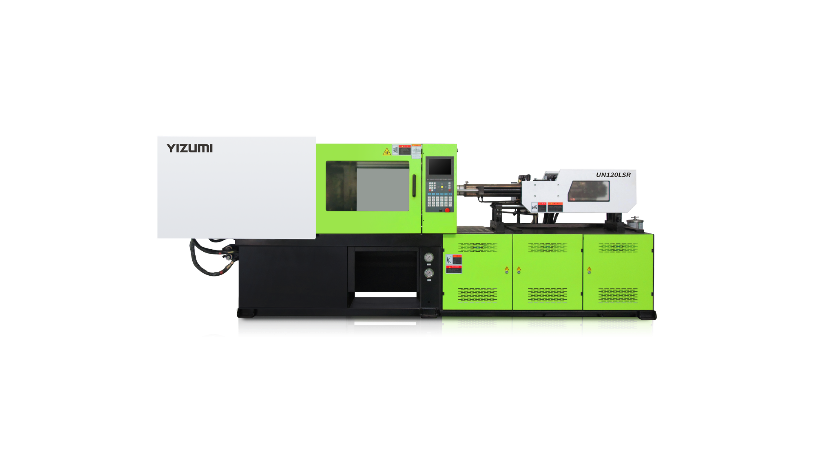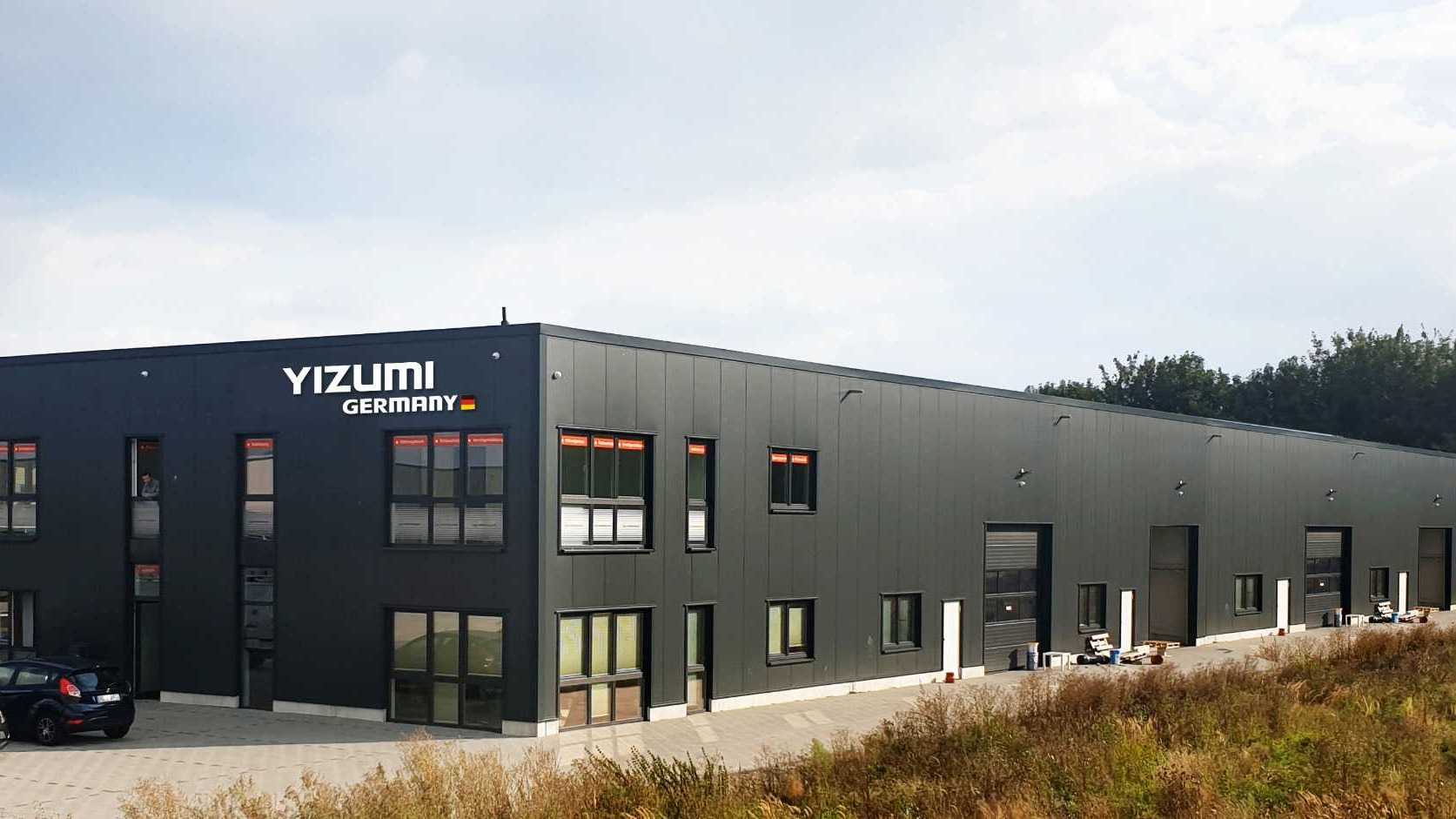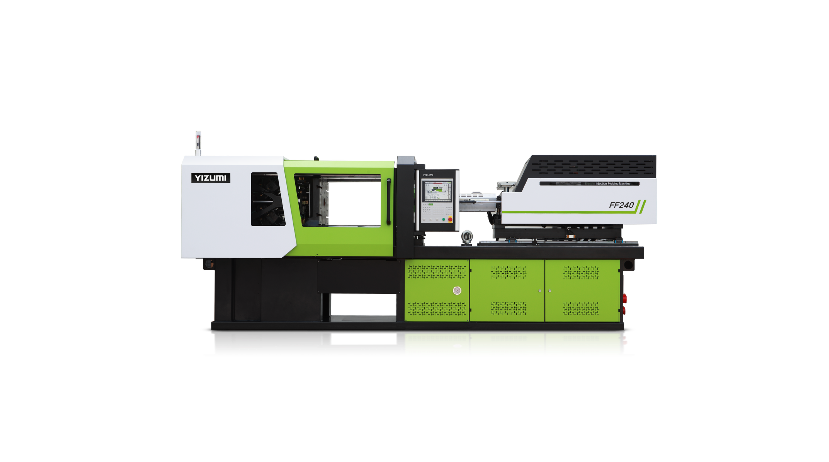Top 5 Reasons for Switching to an Electric Injection Molding Machine
Abstract:
The YIZUMI FF Series Electric Injection Molding Machine stands out as a premium solution, providing superior stability, precision, and automation capabilities. For businesses aiming to enhance production efficiency, reduce costs, and deliver consistent quality, YIZUMI's all-electric injection molding solutions deliver unmatched performance and long-term value.
Manufacturers today face increasing pressure to produce high-quality components efficiently and consistently. Traditional hydraulic injection molding machines often fall short in areas such as precision, energy efficiency, and adaptability to complex molds. Electric injection molding machines address these challenges directly, helping businesses reduce costs, improve output, and maintain product quality. Here are five reasons why manufacturers are making the switch.
1. Overcoming Quality Variability & Reducing Defects
Maintaining consistent product quality is a common challenge in injection molding. Even small variations in injection pressure, clamping force, or temperature can result in defective parts or dimensional inconsistencies. For businesses producing high-precision components, these defects lead to scrap, rework, and potential loss of clients.
Electric injection molding machines offer precise control over every aspect of the molding process, including injection speed, pressure, and clamping force. This level of precision ensures that each part meets the required specifications, even when producing complex geometries or tight-tolerance components. By reducing variability, manufacturers can improve yield rates, lower waste, and enhance overall product quality.
Moreover, repeatability is critical for high-volume production. With traditional hydraulic machines, even minor wear or temperature fluctuations can create inconsistencies over long production runs. Electric systems maintain stable, repeatable performance, giving manufacturers the confidence to scale production without compromising quality.
All-electric Injection Molding Solutions
2. Reducing Energy Costs & Minimizing Environmental Impact
Energy consumption is a major concern for many manufacturers. Hydraulic injection molding machines continuously draw power to maintain system pressure, even during idle periods, resulting in high electricity bills and significant heat generation. These energy costs add up quickly, especially in high-volume operations, and can also increase cooling and facility maintenance requirements.
Electric injection molding machines utilize servo-driven motors that operate only when motion is required, drastically reducing energy consumption. The reduced heat output not only lowers cooling costs but also extends machine component life, cutting maintenance frequency.
For businesses with sustainability goals, switching to electric systems can also reduce the carbon footprint of production processes. Lower energy consumption and reduced waste align with environmental standards, helping manufacturers meet regulatory requirements and appeal to environmentally-conscious clients.
3. Shortening Cycle Times without Compromising Accuracy
Many manufacturers struggle with the balance between production speed and part quality. Traditional hydraulic machines often require slower cycles to maintain consistency, which can limit output and reduce overall efficiency. This is especially problematic for complex molds that require precise control of injection and cooling stages.
Electric injection molding machines offer faster acceleration and deceleration, allowing machines to move between stages quickly while maintaining precise control over pressure, speed, and position. This enables shorter cycle times without sacrificing accuracy, improving throughput, and reducing lead times.
Faster cycles also improve responsiveness to production demands. Manufacturers can switch between different molds or part designs more efficiently, handle rush orders, and maintain high output levels without compromising quality. Over time, these efficiency gains translate into significant cost savings and higher profitability.
All-electric Injection Molding Machines For Auto Parts
4. Simplifying Process Control & Reducing Human Error
Injection molding processes are complex, with numerous variables affecting part quality. Manual monitoring and adjustments can be time-consuming and prone to error, often resulting in defective parts, mold damage, or unplanned downtime.
Electric injection molding machines integrate advanced control systems that monitor key parameters in real-time, detect anomalies, and make adjustments automatically. Operators are guided by data-driven feedback rather than guesswork, reducing the likelihood of human error and minimizing production risks.
Additionally, centralized control systems allow manufacturers to manage multiple machines simultaneously. By streamlining operations, businesses can maintain consistent quality across multiple production lines, improve workforce efficiency, and reduce operational stress. This intelligent process control is particularly valuable for companies producing high-volume or high-precision components.
5. Adapting to Complex Designs & High-Precision Requirements
Modern products often demand intricate mold designs, tight tolerances, and multi-component assemblies. Traditional hydraulic machines may struggle with uneven force distribution, inconsistent filling, and difficulty performing complex actions like core pulling or gate cutting. These challenges can lead to defects, longer setup times, and increased material waste.
Electric injection molding machines deliver stable, precise force and pressure control, ensuring consistent filling and ejection of even the most complex molds. The ability to handle synchronized ejection, fine gate cutting, and high-speed injection makes them ideal for industries such as electronics, automotive, and medical devices.
Moreover, their flexibility allows manufacturers to adapt quickly to new materials or design changes without extensive reconfiguration. This adaptability reduces downtime and supports innovation, enabling businesses to respond to evolving market demands while maintaining high-quality output.
YIZUMI Electric Injection Molding Machine: Advanced Precision &Efficiency
The YIZUMI FF Series all-electric injection molding machine exemplifies the advantages of switching to electric technology. With clamping forces ranging from 900 to 13,800 kN, it is designed for high-precision, complex, and high-quality production.
All-electric Injection Molding Machine Supplier
Stability and Precision
The dual-cylinder parallel ejection design ensures uniform force application during mold release, achieving ejection position accuracy up to 0.2mm. Combined with TBF (Tie Bar Free) technology, the clamping unit remains stable and clean, reducing the risk of product contamination. The SMART mold protection system further safeguards molds from damage caused by foreign objects or operational errors.
Advanced Injection Unit
The injection unit leverages LGS (Linear Guide Support) technology for improved rigidity and smooth motion, while a built-in hydraulic pump station supports flexible molding processes. Closed-loop injection pressure control ensures high stability, maintaining ±0.1 MPa accuracy. The SDC technology with four independent servo motors delivers rapid response and precise control over injection, plasticizing, clamping, and ejection.
Intelligent Control and Automation
The European KEBA2000 Controller offers real-time monitoring, statistical process control (SPC), and flexible integration capabilities. Centralized control enables efficient operation of multiple machines and seamless integration with automated production lines. This intelligent system ensures consistent quality, reduces manual intervention, and boosts overall productivity.
Efficiency and Flexibility
With its combination of precision, stability, and intelligent control, the YIZUMI FF Series electric injection molding machine is adaptable for complex molding tasks while maintaining high efficiency. Its modular design allows businesses to meet diverse production requirements, making it an ideal choice for companies seeking reliable, high-performance electric injection molding machines.
YIZUMI Electric Injection Molding Machine
Conclusion
Switching to an electric injection molding machine offers clear advantages for manufacturers looking to improve precision, efficiency, and adaptability. The combination of energy efficiency, advanced automation, fast cycle times, and precise control makes electric machines a smart investment for industries producing high-quality, complex parts.
The YIZUMI FF Series Electric Injection Molding Machine stands out as a premium solution, providing superior stability, precision, and automation capabilities. For businesses aiming to enhance production efficiency, reduce costs, and deliver consistent quality, YIZUMI's all-electric injection molding solutions deliver unmatched performance and long-term value.
